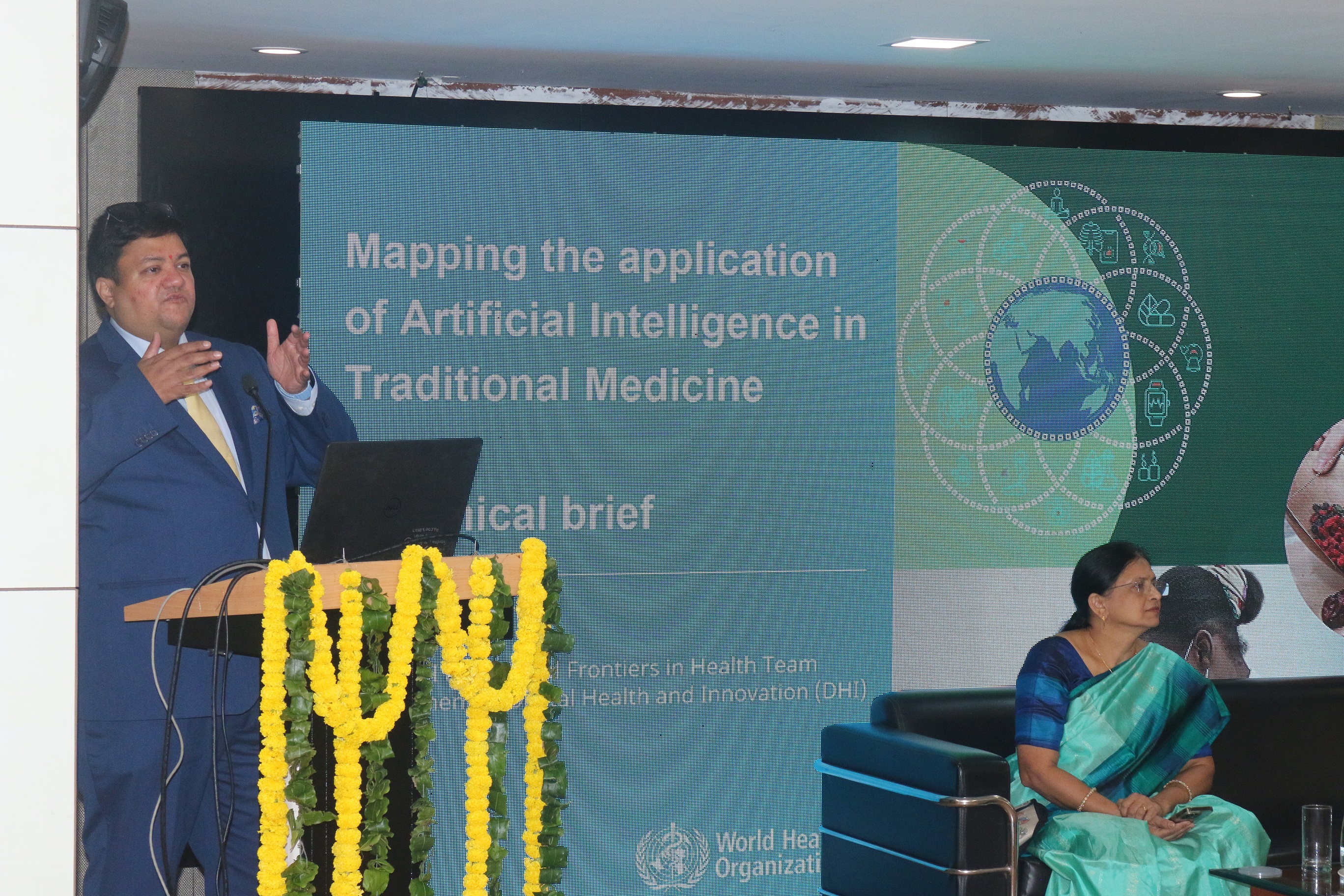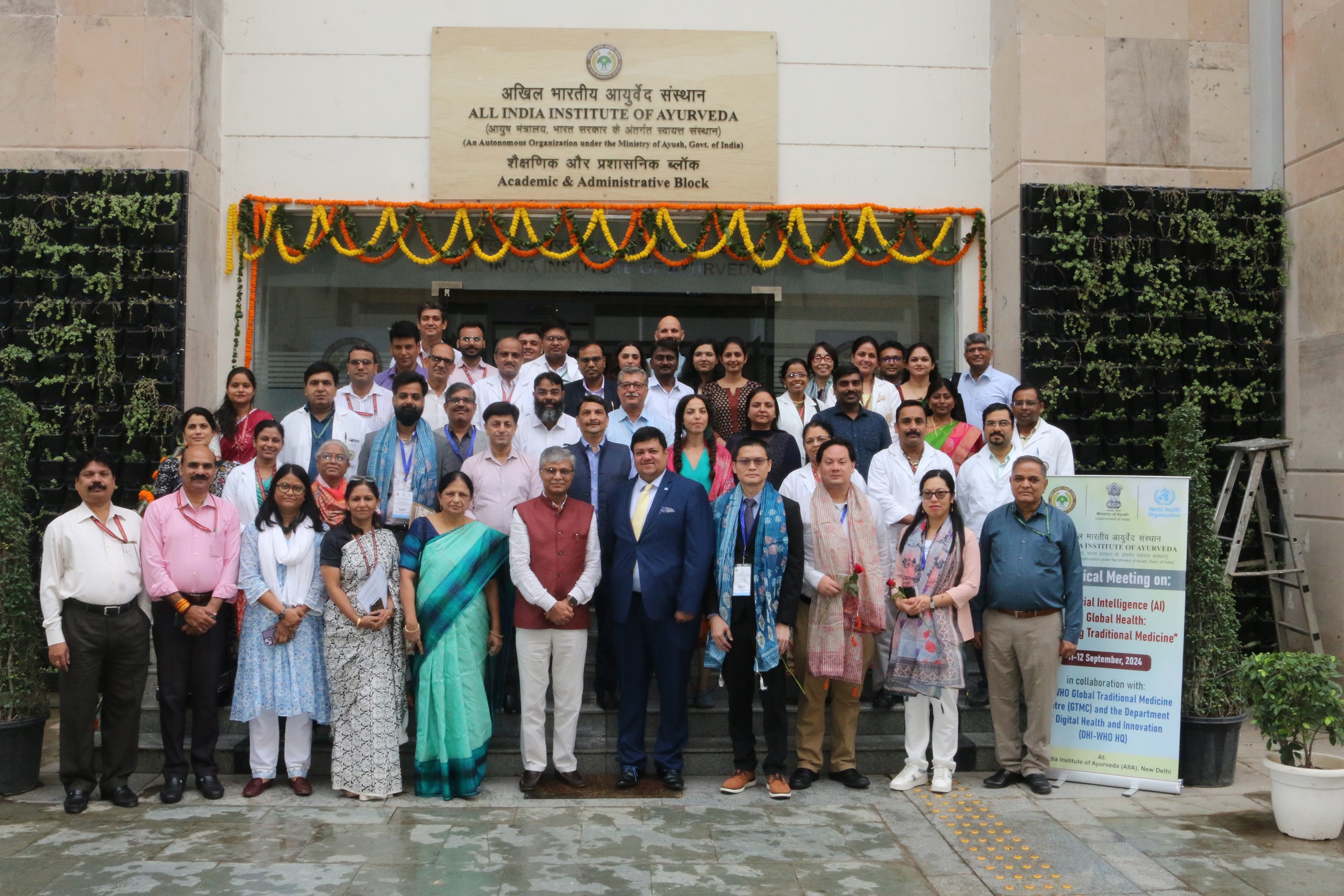and organized a global technical meeting on artificial intelligence (AI) applications in traditional medicine on 11–12 September at the All India Institute of Ayurveda (AIIA) in New Delhi, India. Sixty participants from 15 countries across all six WHO regions participated in the hybrid meeting to exchange experiences and enhance understanding of how AI can be used to advance traditional medicine.
Following scene-setting comments from AIIA, the Indian Ministry of Ayush and WHO’s Regional Office for South-East Asia, plenary sessions focused on equitable access and benefit-sharing through intellectual property (IP) agreements related to AI; strengthening capacity building for traditional medicine stakeholders across a range of AI applications; and how AI can accelerate knowledge-sharing across multiple stakeholder groups, from consumers to policymakers.
Consultations were also conducted among meeting participants on the development of a new WHO global technical brief on AI and traditional medicine, to launch in October 2024, as well as the development of a WHO global library on traditional medicine.

Sameer Pujari presenting AI technical brief in TM. Photo: AIIA
Throughout the meeting, invited speakers, panelists and participants delved into issues, innovations and implications of the fast-expanding world of AI in relation to traditional medicine. The need to adapt intellectual property laws to safeguard traditional knowledge in the age of AI was discussed in relation to the new World Intellectual Property Organization (WIPO) (2024).
Capacity building in AI in relation to traditional medicine was also a core concern of the meeting, given the potential of AI to revolutionize healthcare outcomes. Since 2022, around 25 000 people from 178 countries have taken . Meeting participants in Delhi discussed potential AI applications to support learning and understanding, as well as different types of AI learning opportunities required by different traditional medicine stakeholders. Meeting participants agreed on the need to develop a roadmap of learning requirements for AI in traditional medicine.

The participants with Secretary, Ministry of Ayush, India. Photo: AIIA
With respect to the development of the WHO Traditional Medicine Global Library, participants discussed how to synthesize evidence with AI, and what types of AI applications can support strengthening knowledge sharing through the library. The new WHO Traditional Medicine Global Library seeks to provide resources on traditional medicine, including Indigenous Knowledges, as widely as possible in a secure manner. Six regional portals and dedicated pages for 194 countries are planned as part of this global platform. The Library will undergo continuous testing during 2024–25 ahead of its public launch in conjunction with next WHO Global Summit on Traditional Medicine in November 2025.
The meeting concluded with agreement on developing specific workplans to take forward activities and initiatives discussed by participants.
“The global (AI) market size will be US$ 1.6 trillion by 2030,” said Karthik Adapa, Digital Health Advisor, WHO Regional Office for South-East Asia, pointing to the growing influence of AI on all aspects of health, sustainable development and equity goals, with respect for cultural and biodiversity heritage and rights.





